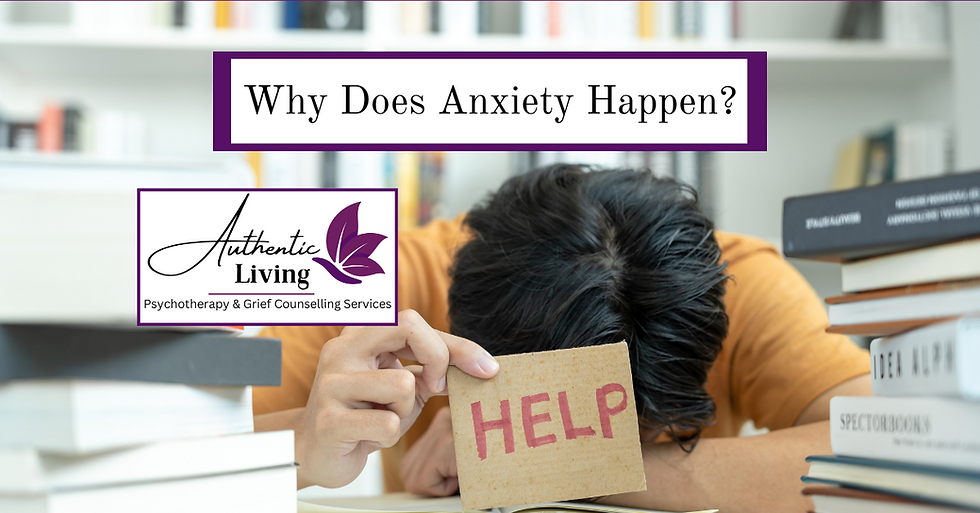What is Narcissism, really?
- Aug 10, 2025
- 5 min read
“Narcissist” has become a popular word in conversations, social media, and even casual jokes. It is often used to describe someone who is selfish, arrogant, or self-absorbed. But clinically, narcissism is more complex and nuanced than just vanity or ego.
In this blog, we will explore what narcissism really means; the difference between narcissistic traits and Narcissistic Personality Disorder (NPD); and how it impacts relationships.

What narcissism looks like: traits and types
Narcissism sits on a spectrum: some people show a few self-focused traits; others have a long-standing pattern that affects relationships and daily life. Common features include:
Grandiosity or a strong sense of specialness: believing one is uniquely talented or entitled.
Need for admiration: seeking praise and attention to feel valued.
Lack of empathy: difficulty recognizing or caring about other people’s feelings.
Entitlement and exploiting others: expecting special treatment and using people to meet needs.
Fragile self-esteem under the surface: anger, shame, or shame-avoidance when criticized.
Two useful styles to know about are:
Grandiose narcissism: outward confidence, charm, and dominance; often visible and attention-seeking.
Vulnerable narcissism: quiet hypersensitivity, shame, and bitterness; may appear shy or withdrawn but still expect special treatment.
Narcissistic Personality Disorder versus narcissistic traits
Not everyone with narcissistic behaviours has a personality disorder. Narcissistic Personality Disorder (NPD) is a diagnosis used when the pattern is stable, long-term, causes real problems, and gets in the way of work or relationships. Someone with traits might act selfishly in certain situations; someone with NPD lives inside this pattern most of the time.
How narcissism develops: possible causes
Narcissism usually arises from a mix of factors; no single cause explains it all:
Early caregiving and attachment: inconsistent care, overvaluation, or neglect in childhood can shape how a child learns to feel worthy.
Temperament and biology: genetic and temperamental differences influence vulnerability.
Cultural and social factors: environments that reward status, image, or performance can encourage narcissistic patterns.
Coping with shame or trauma: for some, narcissistic behaviour is a defensive way to protect a fragile sense of self.
Common patterns in relationships: what to watch for
Relationships with someone high in narcissistic traits often follow a predictable pattern:
Love-bombing: early intense attention and praise that feels flattering and fast.
Devaluation: small criticisms, insults, or gaslighting gradually replace the praise; the partner feels confused and blamed.
Discard: abrupt withdrawal, coldness, or rejection when the partner no longer serves ego needs.
Repeat cycling: the cycle can repeat if the partner stays engaged and hopes for the earlier kindness to return.
Other harmful behaviours include emotional manipulation, minimization of your feelings, public humiliation, and control over your choices.
Gaslighting and trauma bonding: how the harm happens
Gaslighting is a pattern of confusing or denying your reality so you doubt yourself. Examples include denying past behaviour, claiming you misremember, or insisting you are “too sensitive.” Over time, repeated gaslighting damages self-trust.
Trauma bonding can form when intense highs (love-bombing) alternate with harsh lows (devaluation). The nervous system becomes wired to seek the emotional highs, which makes it hard to leave even when the relationship causes harm.
Signs you may be experiencing narcissistic abuse
You might be in a harmful relationship if you notice any of these signs:
You feel consistently blamed, diminished, or unheard.
You second-guess your memories or sense of reality.
Your life centers on the other person’s needs and moods.
You feel anxious, hypervigilant, or emotionally exhausted around them.
The person isolates you from supports or pressures you to cut ties.
Your self-worth has declined since the relationship began.
Safety, boundaries, and practical steps
If you are in a relationship with someone who shows these patterns, your safety and wellbeing come first. Practical steps include:
Create small boundaries: set limits on topics you will discuss and behaviours you will accept.
Use the grey rock method to reduce emotional reactivity: keep responses brief and unemotional when safe to do so.
Document harmful incidents: notes, dates, and witnesses can be useful if legal steps become necessary.
Prioritize safety in cases of physical or escalating emotional abuse; seek immediate help and a safety plan.
Seek legal advice for parenting, custody, or financial concerns if the relationship involves shared responsibilities.
Healing after narcissistic abuse: steps that help
Recovery is possible; it often takes time and careful support. Helpful steps include:
Validate your experience: believing your story is the first step toward healing.
Rebuild safety and routine: small daily habits reduce the stress load on your nervous system.
Reclaim identity: practice activities you enjoyed before the relationship and notice strengths you still have.
Learn boundaries: practice saying no and identifying what you will and will not accept.
Seek trauma-informed therapy: a therapist can help you process betrayal, rebuild trust in yourself, and manage triggers.
Join a support group: connection with people who understand the pattern reduces shame and isolation.
Tools that often help in therapy and self-care include journaling, grounding exercises, paced exposure to triggers, self-compassion practices, and structured skill-building for emotional regulation.
Treatment options for people with narcissistic traits
People with severe narcissistic patterns can be challenging to treat; many do not see their behaviour as a problem. When they do engage in therapy, approaches that may help include:
Long-term psychodynamic therapy or talk therapy: to explore patterns, history, and vulnerabilities.
Schema therapy: to identify and change deep, rigid life patterns.
Mentalization-based therapy (MBT): to improve understanding of one’s own and others’ mental states.
Group therapy: can help build empathy and social skills in a structured setting.
Medication: not for narcissism itself; may treat co-occurring depression or anxiety.
Realistic expectations are important: change is often slow and requires the person to be motivated to examine hard truths about themselves.
When to get professional help
You should seek professional support if:
You are feeling unsafe or are at risk from the other person.
You are experiencing ongoing anxiety, depression, or trauma symptoms.
You are stuck in a pattern and cannot make steps away without support.
You need help with practical things like separation, custody, or finances; a therapist can connect you with legal and practical resources.
Practical self-help steps you can start today
If you are recovering from narcissistic abuse or trying to protect yourself now, try these small steps:
Reconnect with trusted friends or family members.
Limit contact where possible; use written communication when needed.
Keep a journal tracking incidents and your feelings.
Practice grounding: name five things you see, four things you can touch, three sounds, two smells, one taste.
Set three small daily goals to rebuild agency and momentum.

Sandra Graham: supporting personality disorders and healing from narcissistic abuse
At Authentic Living London, Sandra Graham specializes in working with people affected by personality disorders and narcissistic abuse. Sandra offers trauma-informed, compassionate therapy focused on safety, rebuilding self-worth, and practical coping skills.
Sandra helps clients to:
Understand the dynamics of narcissistic relationships and how patterns formed.
Recover from emotional harm and rebuild self-trust.
Practice clear boundaries and safety strategies.
Manage anxiety, depression, and trauma-related symptoms that often follow abusive relationships.
Navigate practical decisions around separation, parenting, and legal resources with sensitivity.
If you have been impacted by narcissistic abuse or want guidance in managing a relationship with someone high in narcissistic traits, Sandra provides a safe, non-judgmental space to begin recovery. To learn more or to book a session in-person in London, Ontario, or virtually across Ontario, reach out to Authentic Living London. You can call/text 226-224-0301 or email info@authenticlivinglondon.com.











Comments